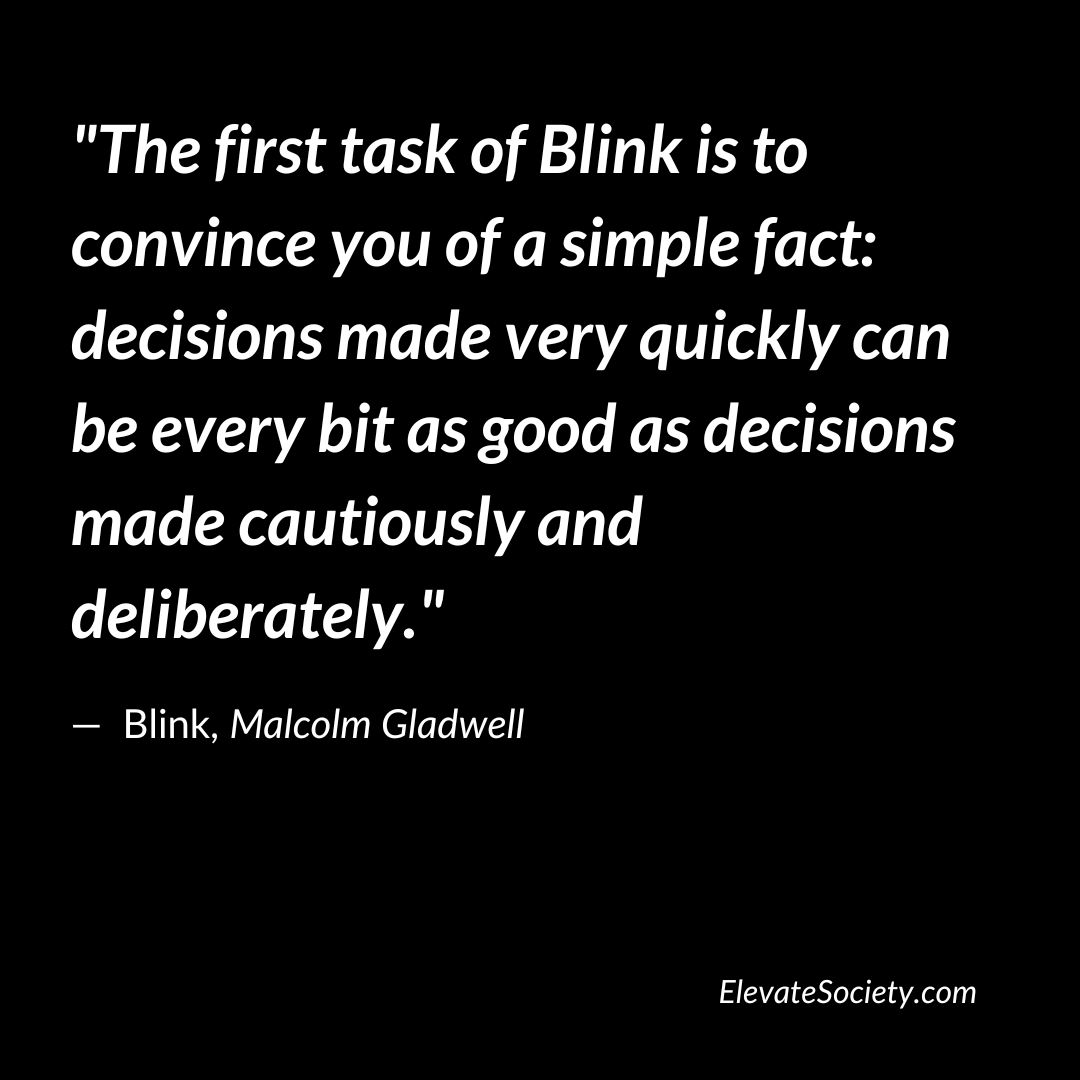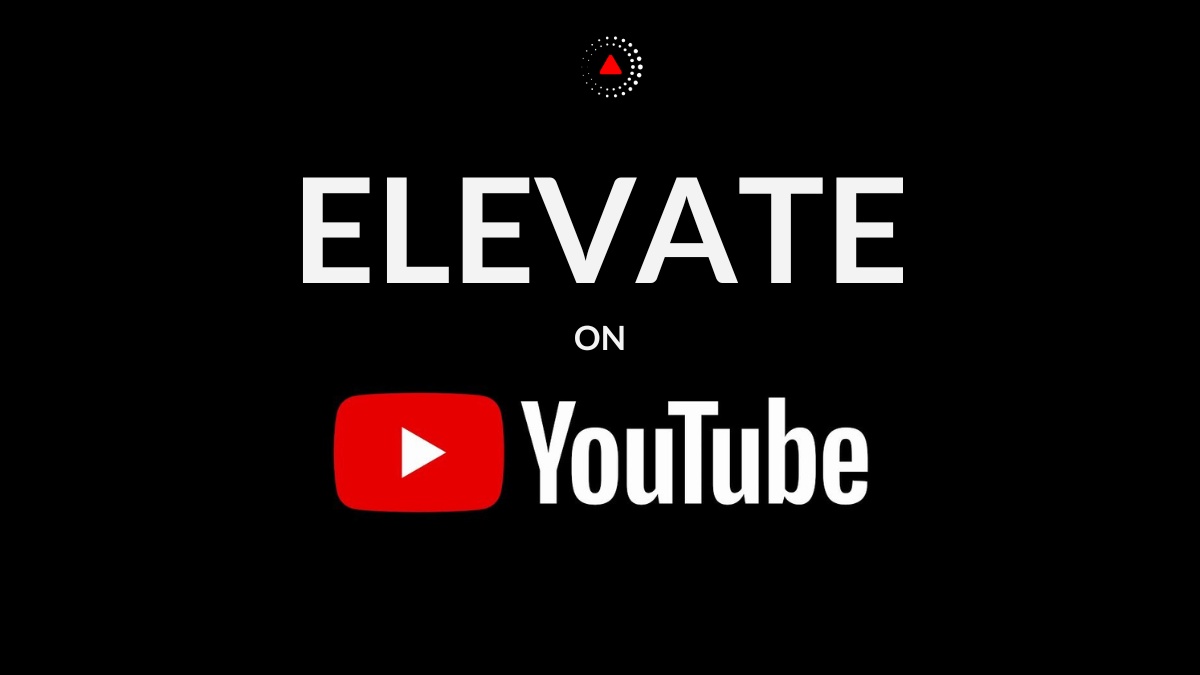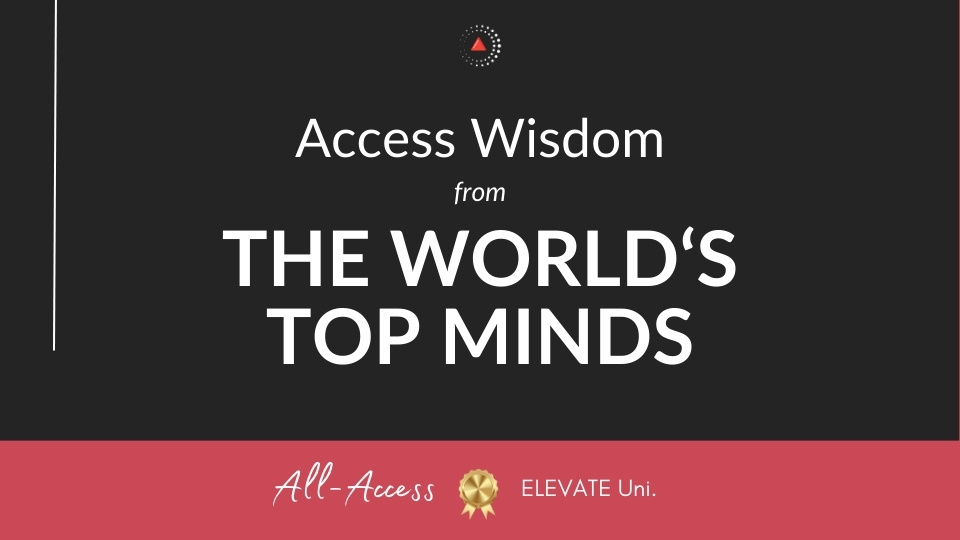Blink: Summary Review & Takeaways
This is a summary review of Blink containing key details about the book.
What is Blink About?
Blink is a book about how we think without thinking, about choices that seem to be made in an instant-in the blink of an eye-that actually aren't as simple as they seem. It reveals that great decision-makers aren't those who process the most information or spend the most time deliberating, but those who have perfected the art of "thin-slicing"-filtering the very few factors that matter from an overwhelming number of variables.
Who is the Author of Blink?
Malcolm Timothy Gladwell CM is an English-born Canadian journalist, author, and public speaker. He has been a staff writer at The New Yorker. Prior to joining The New Yorker, he was a reporter at the Washington Post.
What are key takeaways from Blink?
Takeaway #1 Trust Your Gut Feeling
We've all heard that saying, and both followed it and dismissed it but it's true, your intuitive judgments aka your gut feelings, are often superior to your conscious or rational thoughts and feelings, and are much faster too. Snap decisions, where you don't quite know why you thought, said, or did something are to be honored rather than distrusted and if you look closely you'll realize you make more of them than you think, but rationalize them later!
Thoughtfulness is indeed a virtue, just not when it comes to making decisions as the more you think about something, the harder it is to make the 'right' decision as you get lost in too much information that's not important and that makes you miss the key to the answer. However, when we make a split decision, our brain sifts through the important and unimportant information in a flash whilst also picking up on crucial indicators that the rational part of the brain misses.
Takeaway #2 Stress & Prejudice Play Havoc On Our Judgment
Most people can recognize if someone is happy, sad, or angry due to their facial expression, the exception being people with autism. In the same way that autistic people cannot read peoples expressions or pick up on their feelings, stress renders non-autistic people temporarily blind in their judgments as they go into tunnel vision mode, only able to focus on 1 thing, 1 threat, and overlook the bigger picture. The only way to fix stress is to slow down.
Prejudice and stereotyping are other issues that hamper our judgment. Racial prejudices are deeply ingrained in people, most of the time without them even realizing it, which influences their thoughts and behavior and affects their judgment. To fix this and strengthen your instinct you must go to new places, meet new people, and experience new things.
Takeaway #3 Avoid Bad Snap Decisions By Ignoring All Information
There will be times when you've made a snap decision, followed your gut, and it's backfired on you making you wish you'd thought carefully about the situation before diving straight in. So what went wrong? You picked up on misguided information, most often caused by prejudice. By deliberately ignoring certain thoughts and feelings, the information that is not relevant or helpful, we can come to the right decision that's right for us in that moment.
Book details
- Print length: 296 Pages
- Audiobook: 7 hrs and 44 mins
- Genre: Nonfiction, Psychology, Business, Science, Self Help
What are the chapters in Blink?
Chapter One - The Theory of Thin Slices: How a Little Bit of Knowledge Goes a Long Way
Chapter Two - The Locked Door: The Secret Life of Snap Decision
Chapter Three - The Warren Harding Error: Why We Fall for Tall, Dark and Handsome Men
Chapter Four - Paul Van Riper's Big Victory: Creating Structure for Spontaneity
Chapter Five - Kenna's Dilemma: The Right - and Wrong - Way to Ask People What They Want
Chapter Six - Listening with Your Eyes: The Lessons of Blink
What are some of the main summary points from the book?
Here are some key summary points from the book:
- The power of rapid cognition: Rapid cognition refers to the ability to make quick judgments or decisions based on limited information. Gladwell argues that in certain situations, our unconscious mind can make accurate and insightful decisions faster than our conscious mind.
- The role of intuition: Intuition plays a significant role in decision-making. Gladwell suggests that intuition is not a mystical or magical force but rather the result of the unconscious mind drawing on years of experience and information to make snap judgments.
- The importance of first impressions: First impressions can be surprisingly accurate. Our initial gut reactions or snap judgments can often provide valuable insights, as our unconscious mind can process subtle cues and patterns that we may not consciously notice.
- The influence of bias: Although rapid cognition can be beneficial, it is also susceptible to biases and stereotypes. Our unconscious mind can be influenced by social, cultural, and personal biases, leading to flawed judgments. Recognizing and addressing these biases is crucial.
- The impact of information overload: Too much information can hinder our decision-making abilities. Gladwell suggests that excessive information can overwhelm our unconscious mind, leading to analysis paralysis and poor decision-making. Sometimes, less information can lead to better outcomes.
- The power of practice and expertise: Expertise and extensive practice can enhance rapid cognition. Professionals who have dedicated countless hours to honing their skills can rely on their intuition to make accurate decisions quickly in their respective fields.
- Improving decision-making: By understanding the factors that influence rapid cognition, we can improve our decision-making abilities. Recognizing biases, seeking diverse perspectives, and consciously evaluating our intuitive judgments can help us make more informed decisions.
What are good quotes from Blink?
 [Favorite Quote]: "The first task of Blink is to convince you of a simple fact: decisions made very quickly can be every bit as good as decisions made cautiously and deliberately." (Meaning)
[Favorite Quote]: "The first task of Blink is to convince you of a simple fact: decisions made very quickly can be every bit as good as decisions made cautiously and deliberately." (Meaning)
“The key to good decision making is not knowledge. It is understanding. We are swimming in the former. We are desperately lacking in the latter.” ― Malcolm Gladwell - Blink Quotes
Is Blink worth reading?
We give the book a thumbs up. 👍
What is "thin-slicing"?
The author describes the main subject of his book as "thin-slicing": our ability to use limited information from a very narrow period of experience to come to a conclusion. This idea suggests that spontaneous decisions are often as good as—or even better than—carefully planned and considered ones. Gladwell explains how an expert's ability to "thin slice" can be corrupted by their likes and dislikes, prejudices, and stereotypes (even unconscious ones).
What is intuitive judgment?
Gladwell explains that better judgments can be executed from simplicity and frugality of information. If the big picture is clear enough to decide, then decide from this without using a magnifying glass. The book argues that intuitive judgment is developed by experience, training, and knowledge.
* The summary points above have been concluded from the book and other public sources. The editor of this summary review made every effort to maintain information accuracy, including any published quotes, chapters, or takeaways
Chief Editor
 Tal Gur is an author, founder, and impact-driven entrepreneur at heart. After trading his daily grind for a life of his own daring design, he spent a decade pursuing 100 major life goals around the globe. His journey and most recent book, The Art of Fully Living, has led him to found Elevate Society.
Tal Gur is an author, founder, and impact-driven entrepreneur at heart. After trading his daily grind for a life of his own daring design, he spent a decade pursuing 100 major life goals around the globe. His journey and most recent book, The Art of Fully Living, has led him to found Elevate Society.



























